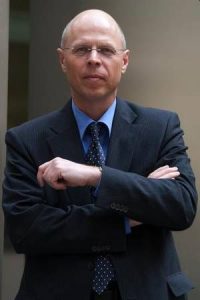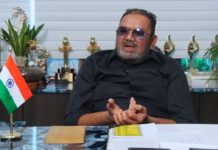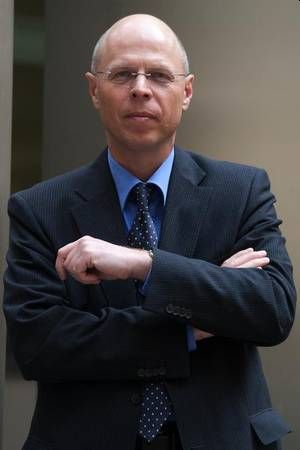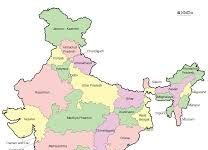http://www.freepressjournal.in/interviews/going-beyond-germany-trying-to-help-other-countries-to-deal-with-paedophilia/1069539
Paedophilia is an ailment that needs treatment
 Dr. Klaus M Beier was in India in March 2017 (http://bit.ly/2pBWCh1). He is a full professor at the Charité, the University Hospital of Berlin, which is the biggest University Clinic of Europe. In 2005, he initiated the ‘Prevention Project Dunkelfeld’ (at the beginning funded by the Volkswagen Stiftung and since 2008 also aided by governmental funds) which works on strategies to prevent child sexual abuse and the use of child abuse images. Meanwhile, it has extended to 10 additional locations all over Germany (www.dont-offend.org).
Dr. Klaus M Beier was in India in March 2017 (http://bit.ly/2pBWCh1). He is a full professor at the Charité, the University Hospital of Berlin, which is the biggest University Clinic of Europe. In 2005, he initiated the ‘Prevention Project Dunkelfeld’ (at the beginning funded by the Volkswagen Stiftung and since 2008 also aided by governmental funds) which works on strategies to prevent child sexual abuse and the use of child abuse images. Meanwhile, it has extended to 10 additional locations all over Germany (www.dont-offend.org).
In an emailed interview with FPJ, he had the following insights to offer. Given below are edited excerpts:
Could you first tell us what made you come to India and talk to people here about the need to look at sexual crimes and paedophilia afresh?
During my scientific work in the area of sexual offences within the last 30 years now I learned about sexual violence being an international issue. This is more relevant if one takes into account the accessibility of the internet into consideration as a medium for the consumption of child abuse images, belittlingly called child pornography.
My experience with victims showed the tremendous long-term consequences for their physical and mental health. Taking this together with the high prevalence of sexual abuse of children and sexual violence against women in every country, there is a need to combine efforts on an international scale and initiate prevention approaches all over the world.According to research data from Germany, there is a significant chance of reachingout to potential offenders and helping them desist from acting out(their ‘fantasies). So it is useful to share experiences in order to reduce the frequency and the impact of traumatisation in other countries as well.
What are your own learnings from the considerable research you have done in the field of sexual crimes in general and paedophilia in particular?
We know from epidemiological data that 1 per cent of the male population is sexually attracted towards children, meaning they are aroused by fantasising the body schemes of girls and/or boys. Furthermore, there is a high stability in this kind of sexual orientation which means that the inclined persons have to control their impulses in order not to act out, and that(this would be applicable) for their whole lifetime.
We need to communicate this knowledge to the health care system in India and find ways of offering treatment for inclined men without stigmatising them, helping them to cope and helping them to differentiate between their sexual preference and their sexual behaviour. Not every paedophile abuses children, and not every abuser is a paedophile. Paedophilia and sexual offending against children is definitely not the same.
Has the approach of the German government and healthcare professionals towards paedophilia under the Dunkelfeld project seen any quantifiable benefits?
Since January 2017, the German Parliament has enforced a law which allows every paedophilic inclined man to seek help from the German health care system anonymously and free of charge. This decision is based on data from our work over the last 11 years.
On an average, 15–20 individuals per month contacted the research office in Berlin, which means from the beginning up to March 2017, there were more than 2,500 applications, 1,000 assessments and treatment offers to 500 participants. Currently, the Primary Prevention Project Dunkelfeld is being expanded. In addition to the one in Berlin, there are 10 contact points in other German States that have been successfully established – and altogether there were 7,500 applications, more than 2,300 assessments and 1,200 treatment offers. The first evaluation of the Prevention Project was done in Berlin in a non-randomised waiting list–control design with multiple assessments for 75 participants.
It revealed that the primary prevention approach reduces risk factors for child sexual abuse, prevents sexual offending against minors and reduces the number of contact offenses as well as reducing frequency and severity of child pornography offenses. These effects remain stable for one year after therapy.
Have your findings been adopted by other countries? What efforts are being taken to ensure that this approach gets to be universally accepted?
Until now, the approach has been tested and evaluated in Germany only. There are attempts to install this approach in other countries like the USA and the UK, Finland, Sweden and the Philippines, but this is far more difficult because of the mandatory reporting laws in those countries. This is an issue for India as well and now we are looking for solutions there. The WHO (World Health Organisation) is strongly supporting this work – paedophilia is a defined diagnosis in their International Classification of Diseases (ICD 10), but until now, they have not been able to support the work by funding – which is unfortunately true for a lot of diseases.
What could the potential ‘next steps’ be in this area?
We need to inform the general public about the prevalence and causes of child sexual abuse. We need to motivate potential offenders to come forward and at the same time establish a service system with trained health professionals in India. And of course to do this in accordance with the (specifics and peculiarities) of Indian culture and the Indian law system.











































COMMENTS